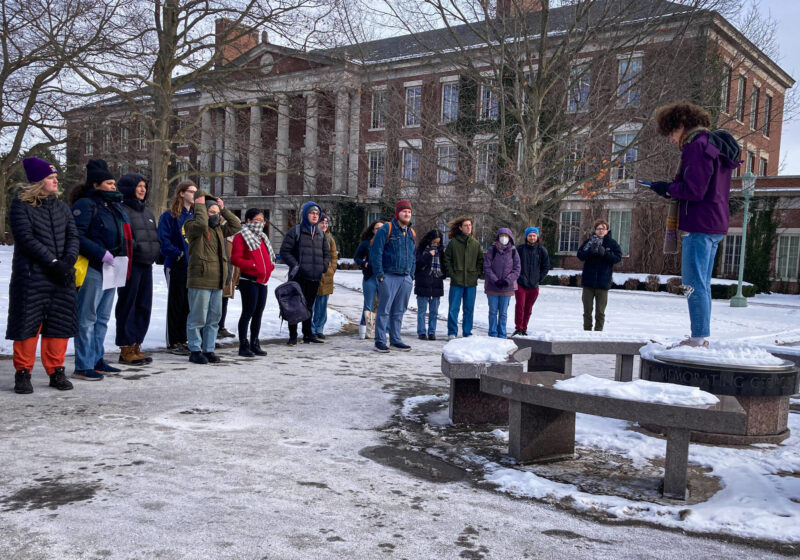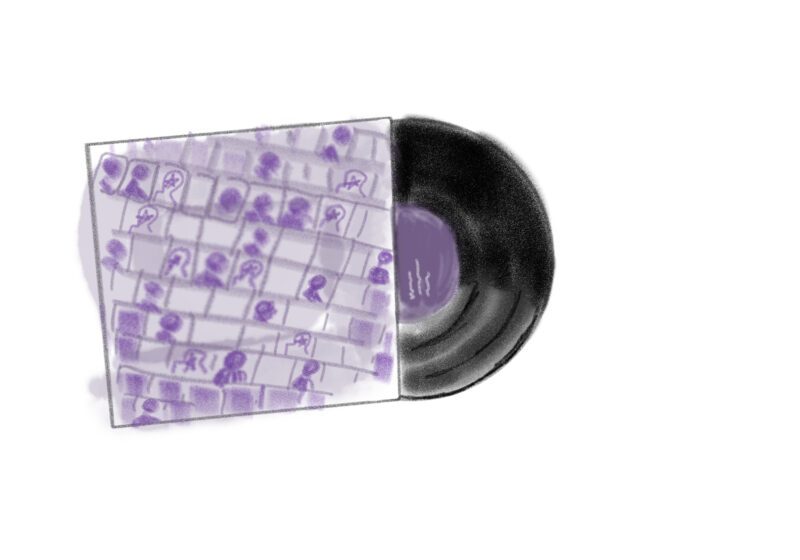Professor of American Cultural History Joan Rubin accepted the inaugural Dexter Perkins Professorship in History on Thursday, March 6. The purpose of the Professorship is to honor the memory of Dexter Perkins, a well-known historian and UR alumnus, and to emphasize the importance of teaching the next generation.
The Professorship was funded mostly by two alumni of the University, Robert Kirkwood ’56 and Francis Grebe ’54. More than fifty other alumni also contributed.
“I am deeply honored to be the inaugural incumbent of the Dexter Perkins Professorship in History,” Rubin said, “especially because the chair is named for such a distinguished member of my own discipline.”
Perkins was one of the leading authorities on American history during his time as Chairman of the Department of American History for UR. He was instrumental in creating the graduate program in history and served as a City of Rochester Historian from 1936 to 1948. He was also the President of the Rochester Association for the United Nations. Perkins passed away in 1984 at age ninety-four.
Rubin is a highly-respected historical scholar, specializing in Middlebrow culture. She has been with UR since 1995 and serves as Co-Editor-in-Chief of the Oxford Encyclopedia of American Cultural and Intellectual History.
She has published two books, the second of which, The Making of Middlebrow Culture, is widely read in the field of American Cultural studies. She is currently Director of Graduate Studies in the history department.
Upon receiving the award, Rubin expressed deep admiration for Perkins’ work. She discussed how the field of history and the history department have changed since his time.
She noted that in Perkins’ day, the department consisted entirely of men. Today, diversity is an important concern, though Rubin said that “we could do better”.
Rubin also said that historians used to only focus on the most important politicians, whereas now there is an emphasis on the common citizen.
Another difference she mentioned was the old assumption that objectivity could and should be attained through historical research.
“We recognize […] that objectivity is illusory,” Rubin said. “For my generation of scholars, the ideal stance of the historian is not neutral detachment, but rather the recognition of the inherently and laudably political implications of our work.”
She finished her speech by recognizing the continued relevance of the American historian.
“Perkins articulated a vision of the scholar that remains inspiring,” Rubin said.
Freedman is a member of the class of 2016.



